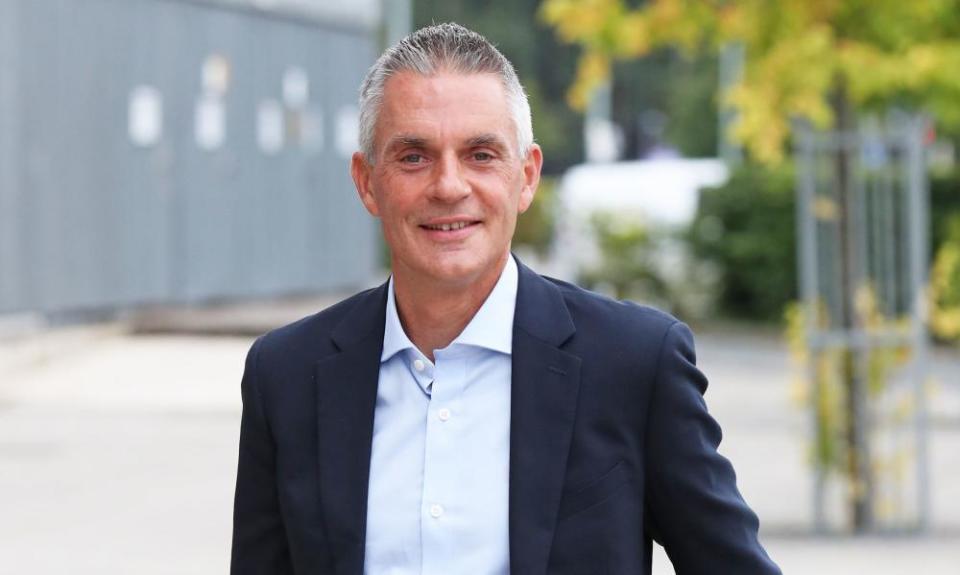BBC 'no bias' rules prevent staff joining LGBT pride marches

BBC journalists have been told that new rules on impartiality mean they may no longer be able to go on LGBT pride marches, even in a personal capacity, in case their presence is taken as a sign of political bias.
The BBC’s director general, Tim Davie, introduced the rules on Thursday. They are designed to shore up the public perception of BBC impartiality, following long-running criticism pushed by rightwing media outlets about alleged biases of corporation staff.
In addition to strict new social media guidelines, Davie introduced a ban on the broadcaster’s news reporters taking part in “public demonstrations or gatherings about controversial issues” even when not marching under an identifiable BBC banner.
Related: BBC journalists told not to 'virtue signal' in social media crackdown
The guidelines state that “judgment is required as to what issues are ‘controversial’ with regard to marches or demonstrations, though it should be assumed that most marches are contentious to some degree or other”.
Journalists in BBC newsrooms across the UK told the Guardian that managers had informed them that while pride marches were not specifically mentioned by the guidelines, journalists would be stopped from attending due to the new rules.
BBC sources did not dispute this, but said interpretation of the rules would at the discretion of local managers. They emphasised that there was no explicit ban on pride marches in the rules. BBC employees not working in the news or current affairs divisions would still be able to take part in public marches and protests.
One BBC journalist said their manager had been told that growing media and political opposition to trans rights in the UK meant public LGBT pride events were now more likely to count as controversial events, meaning they would not be able to attend even in a personal capacity.
Managers also held up Black Lives Matter marches as an example of protests that would be banned for news staff, even in their spare time.
BBC Northern Ireland pulled its employees from taking part in Belfast Pride last year, after politicians raised concerns that it breached impartiality rules by implicitly endorsing same-sex marriage. The same year, however, the BBC’s entertainment arm spent a substantial sum to launch RuPaul’s Drag Race UK with a float at Manchester Pride.
The introduction of the impartiality guidelines has also caught out Fran Unsworth, the BBC’s director of news. She contacted staff on Thursday to introduce the strict social media rules, which explicitly warn reporters that liking posts on Twitter and other social media platforms could be seen as a sign of “revealed bias”.
Unfortunately, staff quickly noticed that Unsworth’s own rarely used personal Twitter account had most recently liked a 2019 tweet by a Liberal Democrat activist criticising the prime minister’s performance in a Question Time debate. The tweet said: “Boris has just offended everyone, male or female, in this room. I’ve never seen a more appalling performance by a UK prime minister. Absolutely dreadful.”
A BBC spokesperson said Unsworth had now deleted all of her “likes”. They said it highlighted the issues that the new impartiality guidelines were intended to address. “This just shows how vigilant we all need to be. This was a classic case of fat finger syndrome. She didn’t even realise she’d ‘liked’ it.”

 Yahoo Finance
Yahoo Finance 